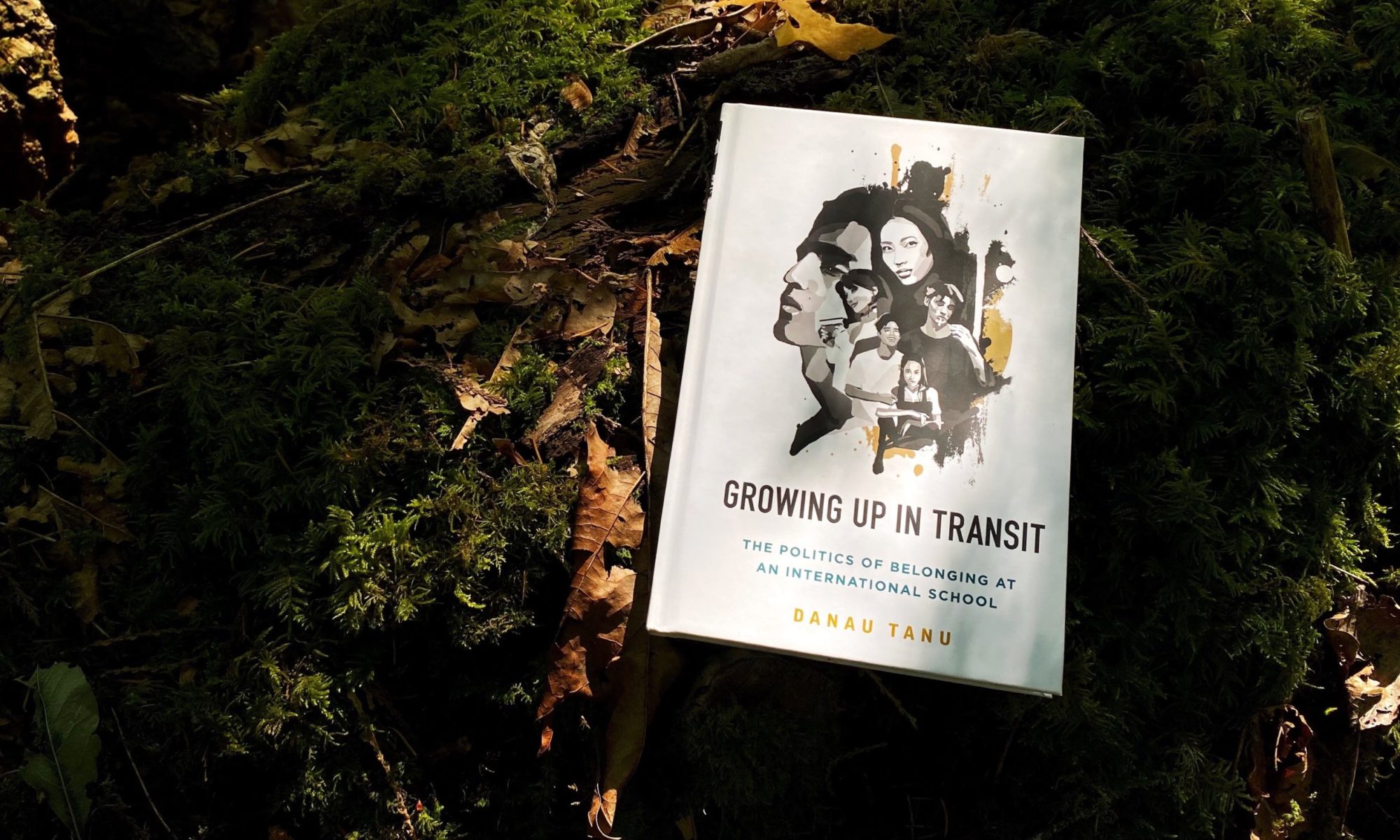Main reading
Growing Up in Transit: The Politics of Belonging at an International School (Berghahn Books, 2020)
The Educator & Self-Reflexivity
Breakout Questions
Q1. Describe a time when you felt seen by a teacher or any adult. Why did you feel seen?
Q2. Describe a time when you did not feel seen by a teacher or any adult. Why did you not feel seen?
Q3. Describe the privileges that you have and don’t have. How might it impact your interaction with students?
Acknowledgment
Some of the design of this section (especially the active listening exercise in the breakout session) was inspired by Jessica Wei Huang‘s design of an Asian Pacific Islander (API) Educators Community Support meeting that she co-facilitated for AIELOC.
The School & The Narratives
Parker, Lyn. 2003. From Subjects to Citizens: Balinese Villagers in the Indonesian Nation-State. London: Routledge.
Anderson, Benedict. 1983. Imagined Communities: Reflections on the Origin and Spread of Nationalism. Verso Books.
Willis, Paul. 1977. Learning to Labor: How Working Class Kids Get Working Class Jobs. Columbia University Press.
Meyer, Heather. 2021. The Global Imaginary of International School Communities. Palgrave Macmillan.
Breakout Questions
Q1. a) Identify and describe an example of a negative narrative that is being told about students at your school. In what way are students being blamed for it? In what way are the staff contributing to the “problem” or acting as gatekeepers? b) Discuss with each other how teachers and administrators can model a solution for the students.
Q2. Have you ever experienced the type of intercultural discomfort that was mentioned in the presentation? Share an example and discuss what you or the school can do to address it.
The Student & the Hidden Curriculum
Tanu, Danau. 2021. The Hidden Curriculum
Decolonising math by Ecolint (International School of Geneva)
Language & Power by TCKs of Asia – on structural racism in international schools & internalised racism. There is a link to the recording on the page.
The Strength of Weak Ties
Original study
Granovetter, Mark. 1973. “The Strength of Weak Ties,” American Journal of Sociology (78:6), 1360-1380.
For well-being
Gillian Sandstrom’s research
Leslie, Ian. 2020. “Why your ‘weak-tie’ friendships may mean more than you think.” In BBC (July 3).
For recruitment
How the Best Bosses Interrupt Bias on Their Teams (via Joel Laban)
Breakout questions
Q1. Describe an example of a hidden curriculum or bias in the curriculum taught at your school. Discuss ways to address the bias or to decolonize it.
Q2. Discuss ways you or your school can learn more about your students’ perspectives.
Q3. Discuss ways to engage parents.
Intergenerational Cultural Gap
Videos created by the International School of Dalat for parents to watch before they enrol their children at the school. See ‘School Culture Videos’ in the right hand column.
Third Culture Kids & Family Ties & A Foreigner in My Own Family: The Hidden Loss of Language & Intimacy by TCKs of Asia. There is a link to the recordings on the respective page.
Other resources
Japanese TCKs on their experiences of learning in a second language – A short video by two Japanese TCKs on what adults did to help them feel ‘seen’ even when they couldn’t speak English.
Third Culture Stories – a podcast by TCKs of Asia.
Identity-Centered Learning by Daniel Wickner
